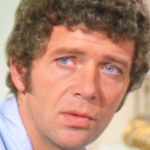With the end of World War II came a burgeoning youth culture that cared less about the ways of the past and more about having fun in the present, and James Dean was likely the perfect icon for this strange and unprecedented period in time. In many ways, the recklessness that lead to Dean’s untimely demise only cemented his reputation as an angst-ridden figure of rebellion. He was a strange and uniquely fashionable celebrity that proved to be just as much of a rebel off the screen as he was on it. There was a dark and brooding side to the actor, and this dark side is what he channeled into his charismatic screen performances. Without the dark side of James Dean, there’d be no James Dean.
In his few on-screen roles, James made a name for himself playing solemn and introspective young rebels with a slightly disaffected outlook towards modern life. Whereas many key cultural icons before him had come from the perspective of adulthood, Dean found himself an avatar for the youth of America. As an avatar for the youth, though, he is not always considered the best role model. Still, he came to represent an idea of male machismo that would have an incredible impact on society even beyond himself, with the very image of James Dean largely considered a major early step towards the counter-culture revolution that would occur throughout many walks of life in the 1960s and the 1970s.
James Dean’s Tragic Plague
Tragedy seemed to plague James Dean from an early age. He was born in the farm country of Indiana on February 8, 1931, but he wouldn’t know the rural life for long. Soon after he was born, his father decided to move their little family to the suburbs of Santa Monica, California, and began to take up dentistry, hoping it would provide them with more opportunities than farming could. It was here in California that Dean began attending school.
James was an only child, which lead to him developing an especially close bond with his mother, although, for some reason, he never grew to be very close with his father. Sadly, the bond James with his mother cut short much too early, as his mom died of cervical cancer when he was only 9 years old. His father was unsure of what to do by himself, and ended up sending James away to live with his aunt and uncle on their Quaker farm. This is one of the first major incidents, if not the true beginning, of a tumultuous father-and-son relationship that mires by estrangement. James and his father would never be close again, something which certainly went on to fuel a great deal of angst in the young artist.
A Young Adult James Dean
James continued living with his aunt and uncle throughout his entire high school career. After graduating, he decided to move back to California so that he could study theater at the University of California in Los Angeles. However, this didn’t last very long, and he eventually dropped out of the university with the intention of taking fame by the horns. He began finding roles for himself in commercials, including an advertisement for Pepsi, and even had some minor and uncredited roles in a couple of Hollywood motion pictures. However, he didn’t feel like he was getting far enough where he was, so, in 1951, he made the move to New York City to study under Lee Strasberg at the Actors Studio.
Never letting up on his serious pursuit of acting as an art, he was able to use his connections to get some small yet noticeable television roles, such as on General Electric Theater.
Broadway Shows
As well, around the same time, he began popping up in a few Broadway shows. James was slowly making waves, and this would soon prove to be enough for him to finally catch his big break back in Hollywood. If you’re enjoying this exploration into the dark side of James Dean, hit the like button to support more content like this in the future. As well, be sure to subscribe if you’d like to be notified when that content drops.
Dean was an early adopter of incorporating improvisations to try and keep his acting fresh, even in his television days. While it impresses many of the people he comes into contact with, certain members of old-school Hollywood puts off by Dean’s innovative and edgy style. In particular, actor Ronald Reagan, far before he became known more for his presidency, worked with Dean and found himself confused by the young actor’s ad-libbing.
1954’s East Of Eden
James Dean’s first big Hollywood role came in the form of a John Steinbeck adaptation, 1954’s East of Eden. This goes on to be Dean’s only major role that releases before his death. The performance embraces even before the accident, and get the actor nominates for a posthumous Academy Award. While this role is not be Dean’s most iconic, his screen presence as the brooding rebel establishes.
Dean’s follow-up to East of Eden was 1955’s Rebel Without a Cause, the role he is most widely famous for. In the film, Dean plays Jim Stark, the perfect portrait of teen angst burgeoning into adulthood. It was a role that Dean seemed to have been born to play, and it would go on to define him for the rest of his days and beyond, for better and for worse. The romance depicted in the film between Dean and co-star Natalie Wood was a big part of the overall effect, making teen girls swoon the world over as they imagined themselves in her shoes. Immediately, Dean became a sex symbol. However, the fiery passion and reckless living that made him standout would eventually prove to be his downfall.
James Dean’s Volatile Hollywood Personality
Dean found a somewhat unwilling role model in a similar volatile Hollywood personality, the actor Marlon Brando. The two certainly shared many of the same traits, something that Brando perhaps saw and didn’t much care for, himself being prone to a bit of brooding and dark introspection. Brando would continually rebuke Dean’s friendship, but did suggest the name of a respectable psycho-analyst in his stead.
James Dean was perhaps as aimless and lost as the characters he portrayed, and he was finding himself somewhat alienated in Hollywood, despite, or possibly because of, his fame. He began to fear that he might continue to be typecast in the role of the angst-ridden teen, so he chose to make his next starring role something different. His third and final starring role in a theatrical release was 1956’s Giant. He played a ranch hand in Texas who strikes it big, a role that garnered him his second posthumous Academy Award nomination.
Artistic Brethren
Dean certainly made a very strong impression on those he came in contact with throughout his Hollywood career. The thing that gave him his “it factor” also made him slightly intimidating to his artistic brethren. He would routinely be unkempt to the point that it was hard to ignore, seeming not to care even remotely about how others perceived him. It was perhaps this refusal to care that gave him his animal magnetism. He wasn’t lazy, though, and was focused on his art to a possible fault. As with other serious actors through Hollywood’s history, including the recent Heath Ledger, Dean lost himself in his art to the point where he would often exhibit mood swings when the curtains closed.
Another thing that is often speculated to be a cause of Dean feeling so uncomfortable in his own skin during his Hollywood career was the matter of his sexuality. As with Brando, rumors circulated about Dean being homosexual, which could make one wonder whether the aforementioned incidents between the two were less strives for friendship and more romantic advances. Looking back, many historians question whether Dean was simply curious, or was perhaps a fully-closeted homosexual. Either way, he wasn’t as straight as the masculine characters he portrayed on film, which perhaps was a point of contention for him during his short career.
James Dean Died In Car Accident
Besides Heath Ledger, the demise of James Dean parallels another recent celebrity who died too young, Paul Walker. Both Paul Walker and James Dean died in car crashes, and both had a history of taking their ennui out using incredibly fast automobiles as their vessel of choice. Dean dabbled professionally in motor sports during his Hollywood career, and would go on to return to the field more seriously soon after he completed the filming of his role in Giant. He spent the money he made on that movie on a Porsche, and that was the car he died in.
Dean was ticketed for speeding only two hours before his fatal accident. True to his iconic nature, he likely didn’t take the warning very seriously, although there is discrepancy about how fast he was actually going at the time of the accident. He eventually collided with a Ford sedan, dying almost immediately and injuring his passenger, German Porsche mechanic Rolfe Wütherich. They were both rushed to a hospital 28 miles away, where James Dean was pronounced dead upon arrival at 6:20pm. However, in another sense, his life, at least in the form of his legacy, was only just beginning.
His Gigantic Impression For The World
For an actor who only appeared in a handful of films, James Dean left a gigantic impression upon the world. He was an icon that came about in the right place during the right time, perfectly representing a unique dark undercurrent that was slowly growing through the youth. As times became increasingly complex, and the nature of truth became more and more intangible, the apathy and lack of purpose exuded by Dean not just in his most famous roles, but in his life, truly became symbolic of a generation, as well as an everlasting attitude that would go on to follow it.
James Dean wasn’t loved despite his dark attributes, but because of them. As well, while many people don’t talk about the dark side of James Dean, that dark side is likely the main reason that most people even know who he is. If we left out a dark secret about James Dean that you think we should know, or even if you’ve got a lighter anecdote about the iconic celebrity, feel free to share it in the comment section down below! As well, like the video if you enjoyed it and subscribe and hit the notification bell for more!


